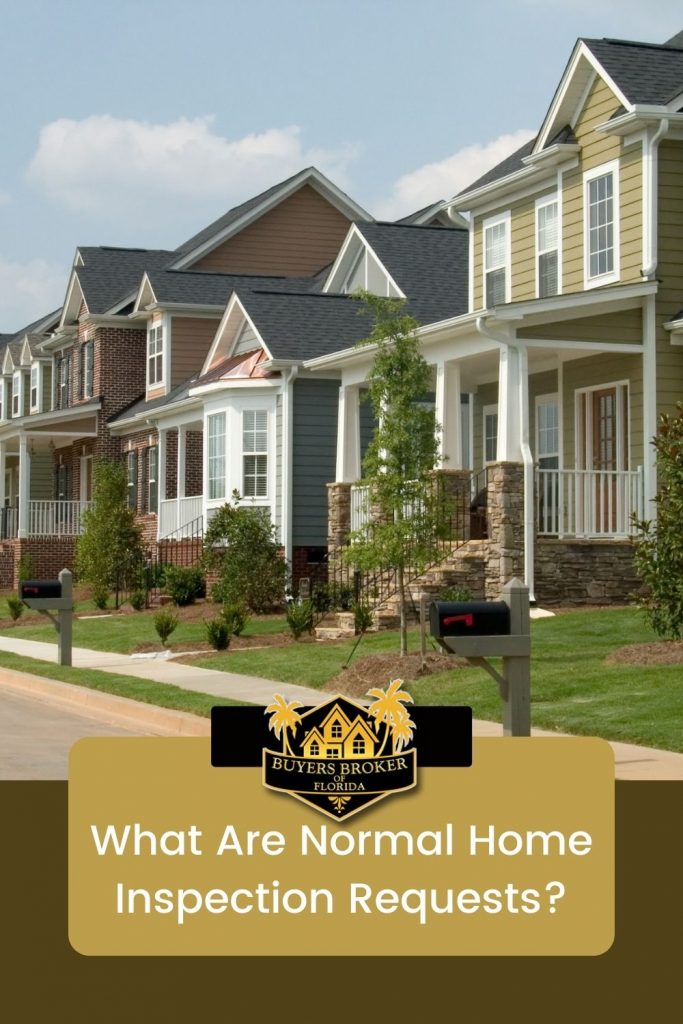What Are Normal Home Inspection Requests?
What has to be fixed after a home inspection?
When you submitted an offer on a house, you likely made it contingent upon inspection. A home inspection can find a lot of problems in your future home which your agent can use to negotiate. But what should you do if the seller won’t make any repairs?
When you made an offer on a house, your real estate agent probably insisted that you put in a “contingent upon inspection” clause. What this meant was that you could schedule a home inspection which would reveal any issues with the property which could cost you a lot of money in repairs. The offer could be subject to further negotiation after the home inspection.
Most homeowners aren’t general contractors and could be unaware that the home’s roof will need to be replaced in the next year or the railing on the basement stairs isn’t up to code. It’s not uncommon for a home inspection to find repairs you may ask the seller to have done before the sale closes. For major problems, such as a new roof, you could ask for a reduction in selling price.
When deciding what to request from the seller, what is normal?
What should you do if the seller won’t make repairs?
Normal Home Inspection Repair Requests
Anything that would have a significant negative impact on your enjoyment of the home should make the home inspection repair request list. A home inspection’s purpose is primarily to find anything that would cost a large sum of money to repair and thus would reduce the home’s value. You don’t want to overpay for a house and then have to spend thousands of dollars making it habitable.
Items such as issues with major systems; electrical, plumbing, or HVAC, are worth negotiating with the seller. If they cause any safety issues for people living in the home, such as faulty wiring which could cause a fire. A toilet that won’t flush, well water that lacks pressure or volume, or other drainage issues are also worth discussing with the seller.
If the house has any pest problems, such as termites, or wildlife infestations, such as bats, ask to have them handled before the closing. Mold in the basement or elevated radon levels are a health hazard, as is lead paint, and it’s reasonable to ask to have them remediated.
If the roof leaks or the property has significant building violations, it’s likely the seller could have to make repairs as the city might not issue an occupancy permit. Normal repair requests after a home inspection related to the occupant’s safety and ability to enjoy the home. Your real estate agent will be an invaluable help during these negotiations.
Home Inspection Repair Requests to Avoid
If you could have identified the repair when you first walked through the home, it’s not a good idea to request the seller fix it after the home inspection. You knew about the peeling paint in the kitchen when you made the offer and the seller expected that you factored that minor flaw into your offer price.
Repair requests after the home inspection aren’t meant to list every minor defect; You’re not buying a brand new house. Any cosmetic issues are easy to handle, and if they would cost less than $100, it’s not worth it to include them in negotiations. You don’t want to risk annoying the seller by presenting them with a nit-picky list.
In a seller’s market, you may have to accept that you must make some repairs yourself. The list you presented to them isn’t a mandatory repair list, and they have no obligation to perform any repairs on it. They could walk away and accept another offer.
In that case, weigh the value of the repairs against the selling price and the home’s overall value. Would the home’s value rise enough after you’ve made the repairs to recoup their cost? Are you already paying under the market for the home and getting a deal? Then it might be worth it for you to go ahead with the sale.
Keep in mind that now that the problem is a known issue the seller will be required to disclose it to any future buyers. They can no longer claim ignorance. And if the home was already priced correctly, they can’t just increase the sale price to cover the amount they must give back to the next buyer to pay for the repair.
The buyer’s mortgage lender may not approve a mortgage on a home that needs a major structural repair. The seller’s agent will point this out to them. Hopefully, they’ll listen and agree to make repairs.
Some sellers, however, are just stubborn. This is why your purchase agreement stated that the offer was contingent upon inspection. You can back out of the deal and usually recoup your earnest money.
Sometimes your best choice is to walk away and find a new home with fewer issues. Listen to your agent’s advice if you’re having a hard time emotionally detaching from the deal.
For more information on buying a home in Orlando, please contact us anytime.
Looking to relocate to the Orlando area, perhaps outside the hustle and bustle of downtown? At Buyers Broker of Florida, we work solely with buyers looking to find the perfect home for their lifestyle and budget. Contact us at any time to start your search for Orlando homes for sale and all surrounding communities and towns.
More on Home Inspections
- New Construction Home Inspections
- Home inspections, who should attend?
- What about home inspections and home inspectors?
- Lake Nona New Construction Home inspections


 Back Home
Back Home


Leave a Reply